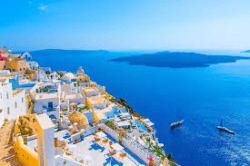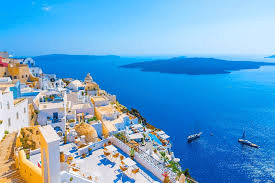Why do we desire a holiday so much? We all get jealous when people talk about their holidays and mention hot, white sand beaches and crystal-clear waters. Where does the deep-seated urge to travel originate from? Do we as humans really want adventure in uncharted territories or is all this media hype making us believe we need things we don’t actually require?

A 2013 survey revealed that a fifth of British citizens consider travel a necessity and not a luxury. They would gladly give up their new possessions to afford a holiday every year. Is it really a need? In the 18th century, being educated and well-travelled was synonymous. The gentry in Britain sent their sons to Italy for their education during this time, as it was considered the hub of European culture. In the 20th century, British seaside holidays were on the rise. Thomas Cook was the first to offer foreign package holidays in the 1950s.
Research has shown that travel can revitalise our brains. This feeling of well-being could influence our decision to travel more. Travelling abroad can boost creativity because our neural pathways are affected by our surroundings and habits. Different synapses are triggered in our brains by new sights, sounds, smells and tastes. Thinking about a permanent move? For Greece citizenship by investment, visit Georgaki Law, who specialise in Greece citizenship by investment.

Travel allows us to forget our worries and concerns at home, allowing us to experience the world in a different light. Travelling is an excellent way to escape your daily life. The novelty of hotel-hopping soon fades when people are on tour or travel for work. The temporary change in routine is what makes it so attractive.
